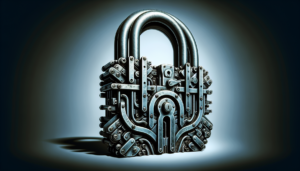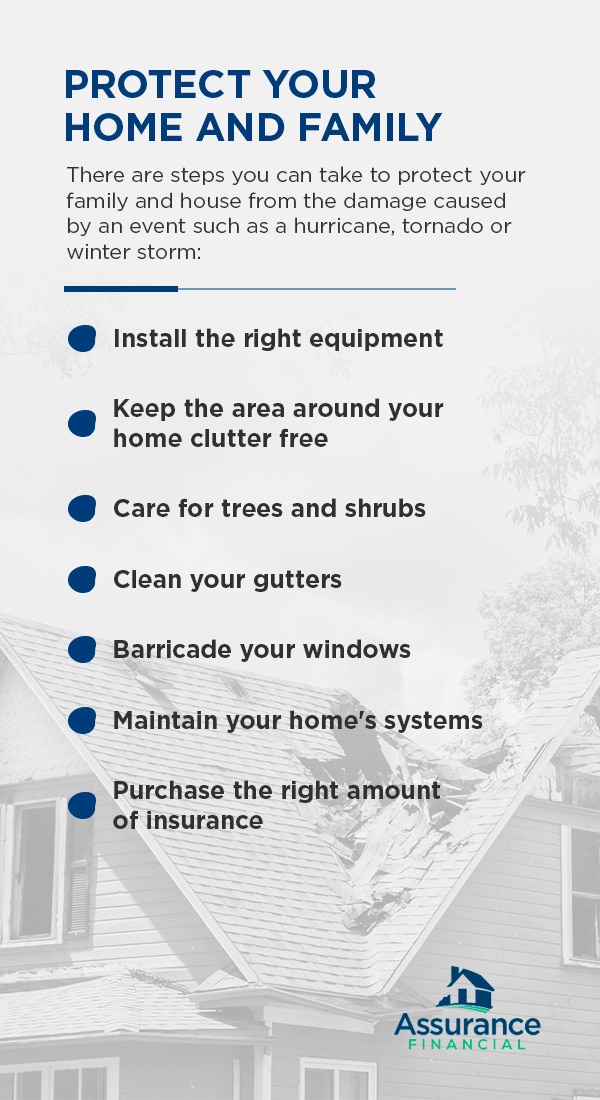
In times of crisis or disaster, it is crucial to prioritize the safety and security of your home. When faced with unexpected events that may put your property at risk, it becomes essential to take proactive measures to safeguard your living space. By implementing a comprehensive and strategic security plan, you can mitigate potential risks and ensure the protection of your home and loved ones. This article will provide you with valuable insights and practical methods to effectively secure your home during times of crisis or disaster.
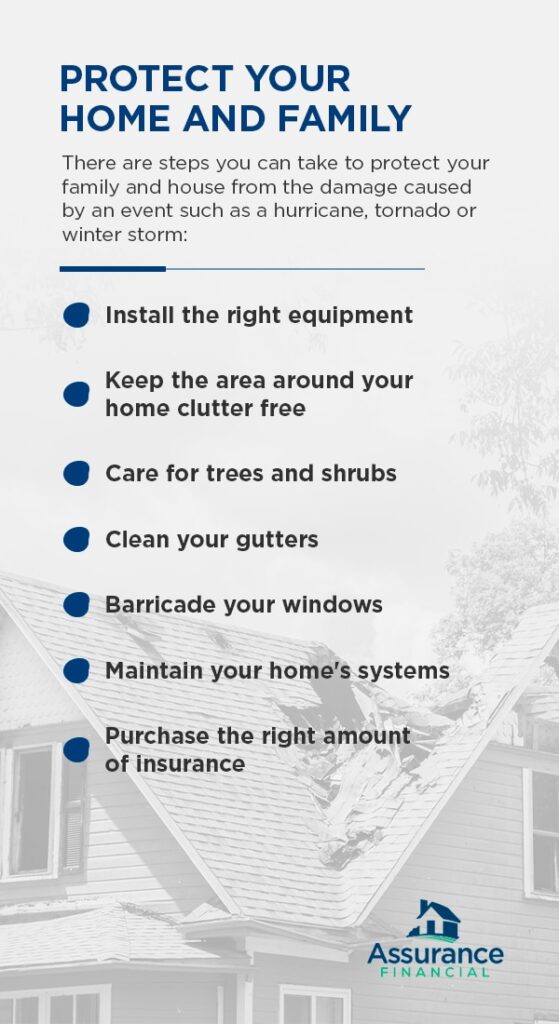
This image is property of assurancemortgage.com.
Emergency Preparedness
In times of crisis or disaster, it is essential to have a well-thought-out emergency plan in place. This plan should outline the necessary steps you and your family should take to ensure your safety and security. First and foremost, designate a meeting point where all family members can gather in case of an emergency. This could be a nearby park, a relative’s house, or any other location that is easily accessible. Ensure that everyone knows the address and how to reach this meeting point.
Additionally, establish a communication plan with your family members. Determine a primary and secondary point of contact for everyone to reach out to in the event of an emergency. This will help minimize confusion and enable you to quickly check on the well-being of each family member. Make sure that each person has the contact information saved in their phones and written down in a designated emergency contact list.
Lastly, familiarize yourself with local emergency resources and evacuation procedures. Know the evacuation routes in your area and have maps readily available. Stay informed about any emergency alerts or notifications through local news channels, radio stations, or emergency alert apps. By preparing in advance, you can minimize the risks and uncertainties associated with emergencies.
Assemble a Disaster Kit
Having a well-stocked disaster kit is crucial for surviving during crises or disasters. Your disaster kit should contain essential items that can sustain you and your family for at least 72 hours. Consider including non-perishable food items, such as canned goods, protein bars, and dried fruits. Don’t forget to include a manual can opener. It is also essential to have an ample supply of clean water – aim for at least one gallon per person per day.
In addition to food and water, your disaster kit should include a first-aid kit with essential medical supplies. This should include bandages, antiseptics, pain relievers, and any necessary prescription medications for family members. A flashlight with extra batteries, a battery-powered radio, and a whistle should also be included in your kit, as they can be valuable tools for communication and alerting others in an emergency.
Other items to consider adding to your disaster kit are blankets, a multipurpose tool, personal hygiene products, extra clothing, sturdy shoes, cash, and a copy of important documents like identification cards, insurance policies, and birth certificates. Remember to update your kit regularly, rotating perishable items and replacing expired supplies.
Know Your Evacuation Routes
During emergencies or disasters, evacuating your home may be necessary for your safety. It is crucial to know the designated evacuation routes for your area beforehand. Familiarize yourself with maps and local transportation options, such as bus routes or emergency shelters. Understand the different ways you can safely leave your neighborhood and reach a secure location.
In addition to knowing the routes, consider the logistics of evacuation. If you have pets, make sure to have a plan in place for their safe evacuation as well. Also, take into account the specific needs of family members, such as the elderly or individuals with disabilities. Ensure that you have a plan to accommodate their needs and consider enlisting the help of neighbors or local authorities if necessary.
Stay alert and informed about any evacuation orders or recommendations issued by local authorities. Follow their instructions promptly and do not delay in evacuating when directed. By knowing your evacuation routes and being prepared, you can ensure a swift and secure transition during times of crisis.
Install Quality Locks on Doors and Windows
Physical security measures are essential for protecting your home during a crisis or disaster. Start by ensuring that your doors and windows are equipped with high-quality locks. Strong deadbolt locks are highly recommended, as they provide an extra layer of security to your entry points. When choosing locks, opt for those that are tamper-resistant and tested to meet industry standards.
Regularly inspect your locks for any signs of wear or damage, and promptly repair or replace them as needed. Additionally, reinforce your door frames and window frames to prevent forced entry. Consider using security film or laminates on windows to make them more resistant to break-ins.
Reinforce Entry Points
Alongside quality locks, reinforcing your entry points can greatly enhance your home’s security during a crisis or disaster. Reinforcing the doors themselves with metal or solid core materials can make them more resistant to forced entry. Additionally, installing a doorjamb reinforcement plate can help strengthen the door frame, preventing it from being easily kicked open.
Windows are another vulnerable point of entry, so consider installing security bars or shatter-resistant film to deter or delay intruders. Reinforcing the glass with a security film can make it more difficult to break, providing an additional barrier against potential threats.
Utilize technology to further secure your home. Smart locks can offer added convenience and security, allowing you to lock or unlock your doors remotely. Additionally, smart doorbell cameras can provide you with real-time video feed and alerts on your smartphone, helping you monitor and control access to your home.
Use Deadbolts and Security Bars
When it comes to securing your home, deadbolts and security bars are crucial components of a comprehensive security system. Install deadbolt locks on all exterior doors, as they are significantly harder to pick or force open compared to regular locksets. Choose deadbolts with at least a one-inch throw and a hardened steel bolt for maximum security.
Security bars, also known as burglar bars or window guards, can be installed on ground floor windows or any other vulnerable windows in your home. These bars act as a strong physical barrier, preventing intruders from entering through the windows. Ensure that the bars are securely attached to the window frame and that they meet safety standards in your region.
Regularly inspect and maintain your deadbolts and security bars. Lubricate the lock mechanisms, tighten any loose bolts or screws, and address any signs of wear or damage promptly. By investing in high-quality deadbolts and security bars, you are taking proactive steps to enhance your home’s security and protect it during crises or disasters.
Secure Valuables and Important Documents
Protecting your valuables and important documents is essential during a crisis or disaster. Consider investing in a home safe or renting a safety deposit box at a bank. These secure storage options can safeguard items such as jewelry, important documents, cash, and other valuables. Ensure that the safe is fireproof and waterproof to provide maximum protection.
In addition to physical storage, make digital copies of important documents. Scan documents such as identification cards, passports, insurance policies, and medical records, and save them on a secure, password-protected device or in a cloud storage service. Having digital copies can be invaluable if physical copies are lost, damaged, or inaccessible during an emergency.
Remember to regularly update your digital copies and store them in multiple locations for redundancy. Inform trusted family members or friends of the location of your digital copies, so they can access them if necessary. By securing your valuables and important documents, you can minimize potential losses and expedite recovery efforts during a crisis.
Use a Safe or Safety Deposit Box
Safes and safety deposit boxes play a crucial role in securing your valuable possessions and important documents, especially during crises or disasters. Safes come in various sizes and levels of security, so choose one that meets your specific needs. Consider factors such as fire resistance, water resistance, burglar resistance, and capacity when selecting a safe.
Place your safe in a discreet and secure location, such as a closet or a hidden area. Ensure that it is securely bolted to the floor or wall to prevent thieves from easily removing it. Safes should also be protected with a strong combination lock or an electronic keypad lock with a unique passcode.
Alternatively, you may opt for a safety deposit box at a bank. Safety deposit boxes provide an added layer of security through a bank’s robust physical and digital security measures. They are typically located in a heavily protected vault and can only be accessed by authorized individuals.
When choosing between a safe and a safety deposit box, consider the level of accessibility you require. Safes provide convenient access to your possessions at any time, but safety deposit boxes may require a trip to the bank. Regardless of your choice, make sure to regularly update and maintain the contents of your safe or safety deposit box.
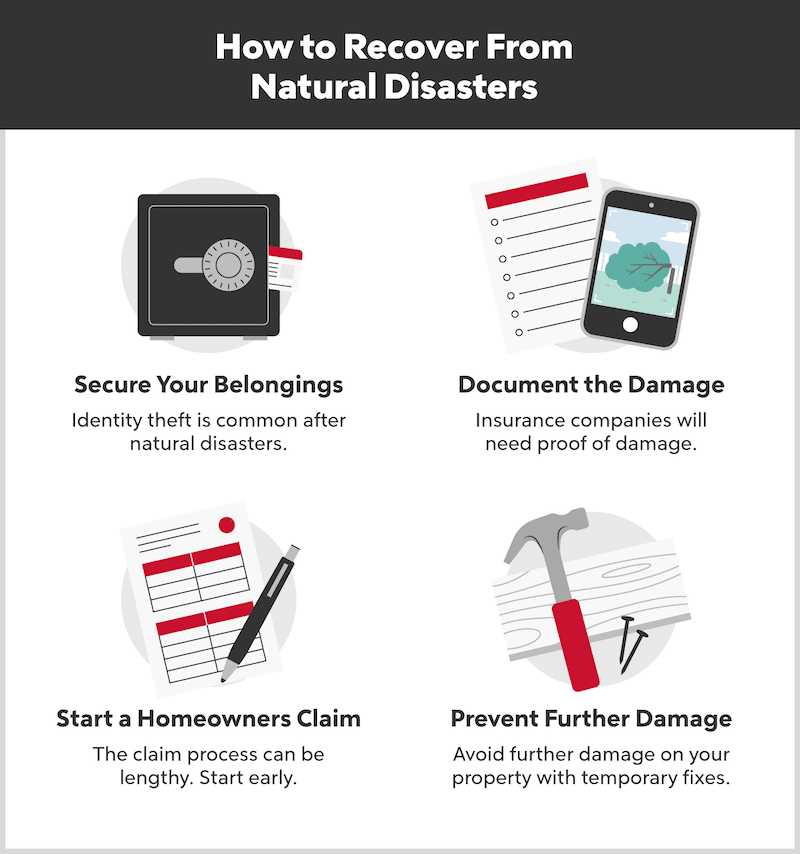
This image is property of www.rocketmortgage.com.
Make Digital Copies of Important Documents
In addition to physical storage options, creating digital copies of important documents is an essential step in securing your home during a crisis or disaster. By having digital backups, you can ensure that critical information is not lost or destroyed in case of damage, theft, or unavailability of physical copies.
Scan important documents such as identification cards, passports, birth certificates, insurance policies, medical records, and any other crucial paperwork. Save these scanned copies on a secured, password-protected device or cloud storage service. It is important to choose a reputable cloud storage provider that offers strong encryption and data protection.
Regularly update your digital copies to include any new or revised documents. It is recommended to create multiple copies and store them in different locations for redundancy. This way, even if one copy is inaccessible or compromised, you have backups readily available.
Inform trusted family members or friends of the location and access details of your digital copies. In the event of an emergency, they can assist you or access the documents on your behalf. By digitizing important documents, you ensure that vital information remains protected and easily accessible during challenging times.
Home Security Systems
Investing in a comprehensive home security system is an effective way to secure your home during a crisis or disaster. These systems offer a range of features designed to deter potential intruders, monitor your home, and provide you with peace of mind.
Install a Burglar Alarm System
A burglar alarm system is an essential component of any home security system. It consists of a network of sensors that detect unauthorized entry or movement within your home. When triggered, the alarm system will emit a loud siren both inside and outside your home, alerting you and your neighbors of a potential break-in.
When selecting a burglar alarm system, consider the size and layout of your home, as well as your specific security needs. Choose a system that offers a variety of sensors, including door/window sensors, motion detectors, and glass break sensors. These sensors should be strategically placed at vulnerable entry points to ensure comprehensive coverage.
It is also important to choose a reputable alarm monitoring service that can quickly respond to alarms. These services can contact you, local authorities, or your designated emergency contacts when an alarm is triggered. This immediate response can significantly increase the chances of apprehending intruders or preventing further damage to your property.
Utilize Security Cameras
Security cameras provide an additional layer of protection for your home during a crisis or disaster. They act as a deterrent by monitoring and recording activities around your property. When installed in strategic locations, security cameras can capture valuable evidence in the event of a break-in, vandalism, or suspicious activities.
When setting up security cameras, consider both indoor and outdoor areas of your home. Outdoor cameras should be weatherproof and capable of capturing high-definition footage day and night. Place them at entry points, such as doors and windows, as well as areas with valuable belongings, such as garages or storage sheds.
Indoor security cameras can monitor the interior of your home, providing you with real-time video feed and alerts. This allows you to remotely check on your home and loved ones even when you are away. Choose cameras with advanced features, such as motion detection and mobile app integration, for added convenience and security.

This image is property of wp.zillowstatic.com.
Consider Smart Home Automation
Smart home automation systems offer advanced security features that can enhance your home’s security during a crisis or disaster. These systems allow you to control and monitor various aspects of your home remotely, providing you with peace of mind and convenience.
With smart home automation, you can control elements such as lighting, temperature, door locks, and security systems from your mobile device or computer. This enables you to create the appearance of an occupied home even when you are away, deterring potential intruders. You can program lights to turn on or off at specific times and remotely lock or unlock doors to let trusted individuals access your home.
Integrating smart home security systems with other devices, such as security cameras or motion detectors, further enhances your home’s security. You can receive instant notifications and live video feeds of any suspicious activities on your smartphone or computer. Smart home automation systems provide convenience and advanced security features that can significantly contribute to your home’s safety during crises or disasters.
Outdoor Security
Securing the outdoor areas of your home is essential for preventing unauthorized access and deterring potential intruders. By implementing outdoor security measures, you can create a robust perimeter of protection for your property.
Install Outdoor Lighting
Outdoor lighting plays a vital role in home security, as it illuminates the surroundings and deters intruders. Install motion-activated lights around your home’s exterior, particularly near entry points such as doors and windows. This will ensure that any movement triggers the lights and alerts you to potential threats.
Consider using energy-efficient LED lights for your outdoor lighting. They are long-lasting and provide ample illumination while saving energy and reducing electricity costs. Ensure that all paths, driveways, and dimly lit areas are well-lit to discourage any attempts at unauthorized access.
Trim Shrubs and Trees
Maintaining the landscaping around your home can contribute to its overall security. Overgrown shrubs and trees provide hiding spots for potential intruders, compromising the visibility and accessibility of your property. Regularly trim bushes, shrubs, and trees to eliminate potential hiding places and improve visibility.
When planting new shrubs or trees, consider their location and growth patterns to avoid obstructing windows, doors, or outdoor lighting. Choose thorny or prickly plants for added deterrents. By keeping your landscaping well-maintained and strategically designed, you can minimize potential hiding places and enhance the overall security of your home.
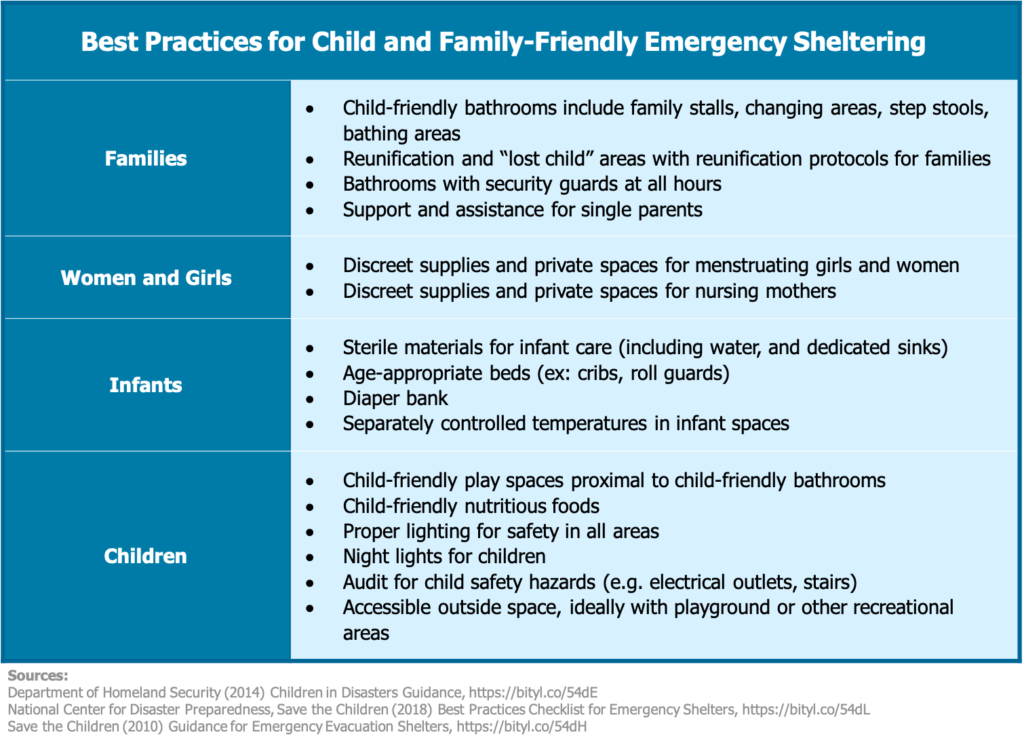
This image is property of rcrctoolbox.org.
Fence and Gate Maintenance
If you have a fence or a gate around your property, it is essential to regularly inspect and maintain them. Fences act as a physical barrier, preventing unauthorized access and deterring potential intruders. Ensure that your fence is sturdy, with no loose or damaged sections where someone can easily gain entry.
Regularly inspect gates, including hinges, latches, and locking mechanisms. Keep them in good working condition and repair or replace any defective components promptly. Consider reinforcing gates with additional locks or bolts for added security.
To enhance the security of your property, install a lockable gate or fence system that allows you to control access. This added layer of security can help protect your home during crises or disasters.
Fire Safety
Fire safety is essential for securing your home and ensuring the well-being of your family during a crisis or disaster. Implementing fire safety measures can help prevent fires, minimize damage, and provide a clear plan of action in the event of a fire emergency.
Install Smoke Detectors
Smoke detectors are a fundamental element of fire safety in any home. Install smoke detectors on every level of your home, including the basement and near all sleeping areas. Test them regularly to ensure they are functioning correctly and replace batteries as needed. It is best to install interconnected smoke detectors so that when one alarm sounds, all alarms in the house activate, providing maximum early warning.
Place additional smoke detectors in high-risk areas, such as the kitchen or rooms with fireplaces. These areas are more prone to accidental fires, and having dedicated detectors nearby can help detect and respond to fires quickly.
Have Fire Extinguishers
Having fire extinguishers readily available in your home is crucial for combating small fires before they escalate. Ensure that you have fire extinguishers on every level of your home, particularly in the kitchen, garage, and near any fireplaces or wood-burning stoves. Follow the instructions provided on the extinguisher for proper usage and maintenance.
Educate your family members on how to operate a fire extinguisher correctly. Remember the acronym PASS: Pull the pin, Aim at the base of the fire, Squeeze the handle, and Sweep back and forth. Regularly inspect the extinguishers to ensure they are in working order, and replace any expired or damaged ones immediately.
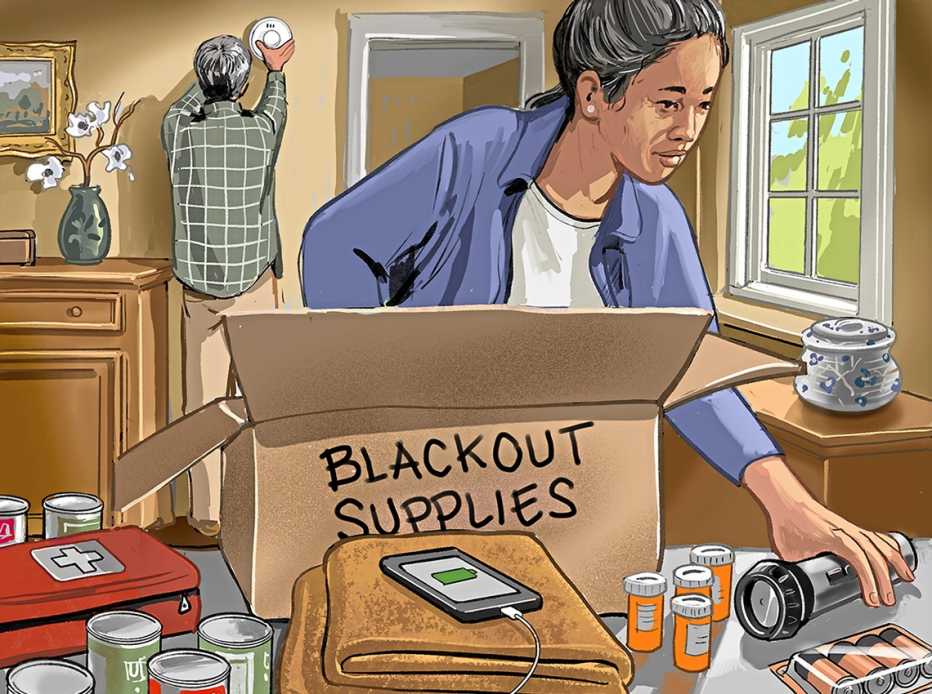
This image is property of cdn.aarp.net.
Create a Fire Escape Plan
Having a well-rehearsed fire escape plan is crucial for ensuring your family’s safety during a crisis or disaster. Create a detailed plan that outlines multiple escape routes from each room in your home. Ensure that windows and doors are easily accessible and can be opened quickly.
Hold regular fire drills with your family to practice the fire escape plan. Teach everyone how to safely navigate through smoke-filled rooms and check doors for heat before opening them. Establish a designated meeting point outside your home where everyone can gather after escaping the fire.
Make sure that everyone knows how to contact emergency services in case of a fire. Post emergency contact numbers near telephones and establish a backup method of communication, such as a designated family member’s phone or a neighbor’s phone.
Water Damage Prevention
Preventing water damage is crucial for maintaining the structural integrity of your home and minimizing potential losses during a crisis or disaster. By implementing preventative measures, you can protect your home from water-related incidents like leaks, floods, or burst pipes.
Check for Leaks and Fix Them
Regularly inspect your home for any signs of leaks, both inside and outside. Check for water stains, mold growth, or musty odors, as these can indicate hidden leaks. Promptly repair any leaks or damaged plumbing to prevent water from seeping into your home’s structure and causing further damage.
Inspect areas prone to leaks, such as roofs, gutters, downspouts, and pipes. Clear clogged gutters and ensure that rainwater flows away from your home’s foundation. Consider installing gutter guards to prevent debris buildup and facilitate proper drainage.
Install Sump Pumps and Water Alarms
Installing a sump pump in your basement or crawl space can help prevent water damage caused by flooding or excessive groundwater. Sump pumps automatically detect rising water levels and pump out the excess water, preventing it from entering your home.
Water alarms are another valuable tool for preventing water damage. These devices emit a loud alarm when they come into contact with water, alerting you to potential leaks or flooding. Place water alarms near potential water sources, such as water heaters, washing machines, and under sinks.
Elevate Valuables
To protect valuable possessions from water damage, consider elevating them above ground level. Store important items such as electronics, documents, and artwork on higher shelves or raised platforms. This can help prevent them from being damaged in case of a flood or water infiltration.
Regularly check the moisture levels in your home, particularly in basements or crawl spaces. Use a moisture meter to detect excessive humidity or dampness, as these conditions can lead to mold growth and water-related issues. Invest in dehumidifiers to maintain optimal moisture levels and prevent water damage.
Power Outage Preparation
Power outages can occur during crises or disasters, leaving you without electricity for an extended period. Preparing for power outages can help you maintain your comfort, safety, and security during such situations.
Invest in Backup Power Generators
Investing in a backup power generator is an effective way to ensure that essential appliances and systems in your home continue to function during a power outage. Backup generators provide a reliable source of electricity, keeping lights, refrigerators, heating or cooling systems, and other vital equipment operational.
When choosing a backup generator, consider its power capacity and fuel source. Determine which appliances and systems are critical for your family’s well-being during a power outage and select a generator that can accommodate their power requirements. It is recommended to consult a professional to assess your specific needs and provide guidance on generator selection and installation.
Stock Up on Non-perishable Food
During a power outage, refrigerators and freezers may lose power, potentially spoiling perishable food items. Stock up on non-perishable food items that can be easily prepared without electricity, such as canned goods, dry goods, and ready-to-eat meals.
Maintain an ample supply of bottled water to sustain your family’s hydration needs during a power outage. Aim for at least one gallon per person per day, and consider additional water for pets or other specific needs.
It is important to periodically review and rotate your emergency food supplies to replace expired items and maintain freshness. Keep a manual can opener easily accessible, as electrical can openers may be unusable during a power outage. Plan and prepare meals that do not require cooking to ensure you have sustenance during an extended power outage.
Have Flashlights and Battery-powered Radios
Flashlights and battery-powered radios are essential items during a power outage. Keep a supply of working flashlights, along with extra batteries, in easily accessible locations throughout your home. Ensure that everyone knows where the flashlights are located and how to operate them.
Battery-powered radios allow you to stay informed about emergency alerts, weather updates, and other important information during a power outage. Tune in to local news or emergency broadcast stations to receive critical updates.
Periodically check and replace the batteries in your flashlights and radios to ensure that they are in working order when needed. Store extra batteries in a cool, dry place, and consider using rechargeable batteries to minimize waste and reduce long-term costs.
Emergency Communication
Establishing clear communication channels during a crisis or disaster is essential for staying connected with your family and accessing help when needed. By following these communication guidelines, you can ensure efficient and reliable communication during challenging times.
Establish a Family Communication Plan
Create a family communication plan that outlines how you will stay in contact during a crisis or disaster. Designate a primary and secondary point of contact outside the immediate affected area, such as a relative or close friend. This ensures that family members can reach out to a reliable source of information and check on each other’s well-being.
Share contact information within the family, including phone numbers, email addresses, and social media accounts. It is advisable to have both written and electronic copies of the contact information. If mobile networks are congested or unavailable, designate a specific radio frequency for family members to communicate with each other using walkie-talkies or two-way radios.
Keep Emergency Contact Information Handy
Ensure that emergency contact information is readily accessible for all family members. Keep a list of emergency phone numbers such as local police, fire departments, hospitals, and utility companies in a central location, such as on your refrigerator or near home phones. Include both non-emergency and emergency contact numbers.
In addition to local emergency contacts, make sure to have the contact information of family doctors, insurance providers, and any other relevant service providers. Encourage family members to save these numbers in their mobile phones and have a printed copy as a backup.
Consider creating an emergency contact card for each family member, which includes their name, contact information, and any pertinent medical information. These cards should be kept in wallets or purses at all times, ensuring that they are easily accessible in case of an emergency.
Neighborhood Watch
Forming or joining a neighborhood watch group can greatly enhance the security of your community during a crisis or disaster. By working together with your neighbors, you create an environment of safety, cooperation, and vigilance.
Form or Join a Neighborhood Watch Group
If your neighborhood does not already have a neighborhood watch group, consider organizing one. Neighborhood watch groups typically consist of residents who actively look out for suspicious activities, report them to the appropriate authorities, and promote safety within the community.
Reach out to your neighbors and gauge their interest in forming a neighborhood watch group. Schedule regular meetings to discuss safety concerns, share information about recent incidents, and develop strategies for enhancing security.
If a neighborhood watch group already exists in your area, join and actively participate in its activities. Collaborate with fellow members to organize neighborhood patrol schedules, conduct awareness campaigns, and facilitate training sessions on crime prevention and emergency preparedness. By being an active member of a neighborhood watch group, you can contribute to a safer and more resilient community.
Promote Safety and Cooperation with Neighbors
Building a strong sense of community and cooperation with your neighbors is vital for home security during a crisis or disaster. Get to know your neighbors and establish relationships based on trust and mutual support. Maintaining positive relationships with neighbors can lead to increased vigilance and prompt reporting of any suspicious activities.
Encourage open communication with your neighbors and create channels for sharing important information. This can be done through social media groups, email lists, or physical notice boards. Share emergency contact information, neighborhood updates, and safety tips to ensure everyone stays informed.
Consider organizing neighborhood events or block parties to foster a sense of community and encourage communication among neighbors. These events provide opportunities to discuss security issues, share resources, and establish emergency response plans.
By actively participating in your community and promoting safety and cooperation, you contribute to a secure and resilient neighborhood during times of crisis or disaster.
Conclusion
Securing your home during a crisis or disaster requires a comprehensive approach that encompasses emergency preparedness, physical security measures, safeguarding valuables and important documents, installing home security systems, outdoor security measures, fire safety protocols, water damage prevention, power outage preparedness, emergency communication strategies, and active participation in a neighborhood watch group.
By following the guidelines outlined in this comprehensive article, you can significantly enhance the security of your home and ensure the safety and well-being of your family during challenging times. Remember to regularly review and update your security measures, as well as practice emergency procedures with your family. With proper preparation and proactive measures, you can effectively secure your home during a crisis or disaster.






